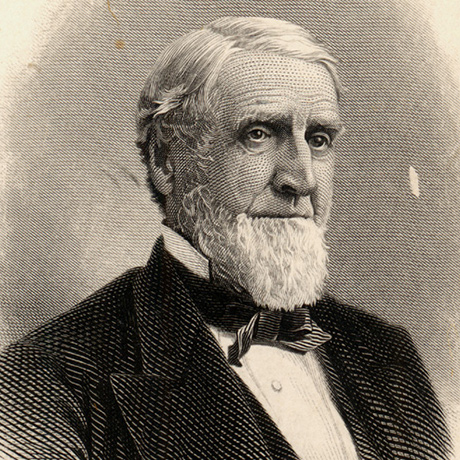It would be easy to hate right now. It would be tempting to write a screed about unhappy I am about how this season is going so far, to make a report card filled with C's and D's. It would be tempting to write something in all caps on my displeasure about the outcome of the last three games.
Because I am not happy.
I am not happy with the energy level brought by the team. I am not happy with three huge 60+ yard pass plays that resulted in three Fordham touchdowns. I am not happy with Fordham, who averaged 1.0 yard per carry, routinely get nine-yard plunges for gains. I am not happy with a single offensive touchdown while the final score is in doubt. I'm not happy with unconverted 3rd downs. And I'm not happy, on a 3rd and 27, calling for a toss right to RB Dominick Bragalone.
Instead of hashing all that is wrong and needs to be fixed, however, I'm going to share with you what I think Lehigh is, and where Lehigh football fits into that. I hope that in here, somewhere, may be some sort of answer to all of these problems.
Lehigh has gone through many evolutionary changes in its 153 year history.
Lehigh has gone through many evolutionary changes in its 153 year history.
Founded by Asa Packer in 1865, Lehigh University came about from the largesse of the canal and railroad tycoon. It was founded in order to develop business and engineering leaders for the Lehigh Valley, consisting mainly of boys from in and around the Lehigh Valley.
Packer became rich from coal and his railroad, and his benevolence allowed the development of the University and kept it financially sound until the great panic of 1893. But the college mostly consisted of locals from the Lehigh Valley and from around the state of Pennsylvania for the most part, and the graduating classes were still a fraction of what they are today. The class of 1890 consisted of a little over 50 men.
In 1884, partially prodded by a team founded at nearby Lafayette College, Lehigh founded their first-ever intercollegiate football team. It consisted of a bunch of prep school boys intrigued by the idea of having a football team at Lehigh.
A football team was seen as good exercise and something positive done at colleges across the country to develop young men, organized by the students themselves. At the time, colleges consisted of almost all men, and the idea was that a full educational experience was to develop both the mind and the body - students were not supposed to sit in study halls all day, they should be entering activities to also keep their bodies active, for both were needed to do well later in life. Colleges were happy to have students organize these teams, as long as people didn't get seriously hurt.
As Lehigh grew and expanded, a small, independent company called Bethlehem Steel would benefit when its owner, Charles M. Schwab, left the leadership of U.S. Steel based in Pittsburgh, Pennsyvania and decided to spend his energy developing the tiny, profitable, expanding steel mill he had bought in 1901. A bunch of Lehigh graduates, including Lehigh alumnus and future steel titan Eugene Grace, helped Bethlehem Steel become a worldwide force and would supply the Allies' considerable steel needs in World War II.
As Bethlehem Steel grew and grew into an industrial titan, the town Bethlehem changed significantly, becoming a town where the Brahmin lived in one sequestered area of town, and the folks running the actual mills lived in another.
Lehigh University changed as well. It wasn't just a prep school for engineering students. It became a place where Bethlehem Steel found and groomed Lehigh graduates to become the managers and executives that ran the Steel - and also some of the people who would work the lines.
It was an uneasy mix of rich boys who could afford to have their parents pay their way to Lehigh, and other, poor kids who might only be able to afford college through some form of scholarship. Like many schools of the time, Lehigh (and Lafayette) sometimes pulled strings and even cut corners academically in order to attempt to have better football teams, though they never pulled some of the more egregious scams of the time. But they always wanted offer scholarships to the student who couldn't afford school, and it was always in the name of opportunity.
It wasn't always easy for Lehigh football to adapt to the societal changes going around it. In the 1920s, academic standards were tightened, causing a number of players to flunk out of Lehigh, a school that wasn't for the academically faint of heart. What ended up happening was that Lehigh had some of the worst teams in their 134 year history. They were clean, but they were getting killed.
As Lehigh persisted through two World Wars, Korea, the social upheaval of the 1960s, Vietnam, and the death of Bethlehem Steel in the early 1990s, Lehigh University expanded and became different. Change happened in South Bethlehem, but not all that fast, and not all that smoothly. Through the post World War II era, Lehigh Universtity emerged through massive social change. In 1974, the first women were admitted to Lehigh, and a school that was almost all white increased the number of non-white people to the University, slowly at first, some might argue too slowly.
No more would Lehigh students be guaranteed jobs at the Steel after graduation after the bankruptcy of Bethlehem Steel - Arthur Andersen, IBM, and GE instead would be the recruiters headed to Bethlehem to find the best engineering and business students instead, as Bethlehem Steel died a slow, rusty, agonizing death, transforming Bethlehem from a steel town to its next chapter.
I often wonder about what had to happen in those locker rooms back then to unify them during times of societal change. The Vietnam war divided families and generations. At that time, football and its traditions seemed like your dad's traditions, not yours. It must have made for some very divided locker rooms.
At a place like Lehigh, with such a focus on academics and preparing its students for long, successful, prosperous careers, I imagine the academics, and winning, propelled them to work together for that common goal. Most years the goal was maybe simply to "beat Lafayette", but many years players undoubtedly put their personal issues aside in order to achieve those goals. At some level, they had to shut out the distractions and even their hopes and dreams, and simply worked on football.
What unified all of these Lehigh football players was a sense that Lehigh was an elite academic school that offered opportunities for kids - still for the most part from the Lehigh Valley - to have a chance at a prestigious college degree they might not get somewhere else. It's a degree for someone who is willing to put in the considerable work that it required. It wasn't for everybody.
Through all of this the performance of the football team suffered highs and lows. Lehigh went from offering some scholarships to the Patriot League's "need-based" aid only, independent of athletic ability.
What this may have done was unite the team, in a sense - all of the team's members were there based on their academic abilities, they were deemed that they could do the work to go there. No matter what your background, no matter where you came from, you were united in the sense that you were a smart kid who can play good football and will be able to compete in Division I sports. And you knew that nobody was getting any special treatment. Everyone went through the financial aid office.
****
Fast forward to the present.
Today we live in a fractured society. We live in a world where there are entire industries and media organizations designed to divide people 24 hours of the day, 7 days a week.
What that does is make it harder to focus on what's important.
Football requires a level of focus and attention to detail that is different from every other sport. In track, you can miss a step and still win a race. In baseball, you can miss the occasional pitch. In basketball, you can deviate from the script and hit (or miss) a game-winning shot.
But football requires a mental and physical dedication that is different. Getting eleven men to do the right thing in tandem, perfectly, is not an easy task. It requires the ability to shut out distractions, focus on certain tasks, and execute them better than the opponents.
In my opinion Lehigh football needs to be the type of team whose attention to detail is better than their opponents. Perfection may not be attained, but it needs to be the over-arching goal of every day, every practice, every play on game day.
I admired Princeton's game when they played Lehigh this year. Though it was painful to watch as a fan, as a football nerd I was awed how great their blocking pickups were, passes by QB John Lovett over the shoulder of WR Jesper Horstead in the exact place where only he could catch it - and Horstead knew the exact time when the ball would be there, and how to come down with it. I said so in my tweets, and I said so in the press box for anyone to hear.
I found myself wishing Lehigh had that same level of execution, on both offense and defense - the attention to detail, picking up the gaps in the line, the timings of the passer and receivers, the holes opened up in the offensive line. I don't think Lehigh necessarily has to be the biggest or the fastest. But I do expect them to execute better than most of the teams they play against, and I do expect them to fight like hell.
Coming to Lehigh to play football means you've established you're smart. You know how to get good grades in high school, you have performed well in high school balancing football and academics, and you have an idea what direction to face to be successful in life. At Lehigh, there are a lot of kids like you from different places all across the country, from different backgrounds and origion stories. What should be the unifying philosophy is that at the end of the day, if you're in the program, it means you're a smart kid that knows that a Lehigh education is an incredible pathway to a good life, if you're willing to put in the work.
All the skills it takes to be successful in life are present in the meticulous prep and study it takes to play football at the Division I level. People who work hard and pay attention to detail do the best. Those that shut out the distractions and focus on the tasks at hand, whether it's football or 4 o'clocks, do well.
Anyone who has even been to Lehigh knows that it ain't for everybody. There is no Playstation major. There are major projects to complete, all-nighters for study, and the academics can be unbelievably stressful. It is not easy, but when you graduate it can prepare you for almost everything life can throw at you. CEO, software engineer, surgeon - you're ready for it.
All of that is more relevant and important than where you're from or how you got here. It is how hard you work while you are here that makes the difference. That's true of any student at Lehigh, but it's especially true of football players, and it has been true of football players at Lehigh for over 100 years. It isn't a freaking cakewalk. It is tough. But football players have been coming to Lehigh to be smarter than others, to outwork others, to not be pushed around, and to win football games. That is success.
Lehigh plays smarter than you, Lehigh outworks you, Lehigh pushes you around, Lehigh beats you.
To me, that is the Lehigh football program I would like to see, and haven't seen so far this year.





Comments
My question is to what degree does the lack of intensity, focus, and execution fall on the coaching staff? After getting beat soundly three games in a row how do you get the locker room and morale where you want them?
I watched a bit of the Fordham game and it seemed like once the game got out of hand there was very little fight left in the team, especially the defense.
the the last few years, wow, we use to own the Ivy League, the Patroit League is the worst
LEAGUE in FCS, I truly believe we would have trouble in Division II. I will always be for
Lehigh forever, but its sad what is happening. Remember I was there for those 1-9 and 0-9,
during Fred Dunlap first few years, but there was hope, I don't see that now.
First off, there IS hope. Time is an ally. Just not with the current coaching staff and overall roster in 2018. And the great Colgate team this year is a Patriot League team, last I checked. Under 4 points per game on defense. Unheard of in today's football world. But yes, the PL is way below the Ivy this year on the whole. No debate there. Chuck has done the best job of anyone in the media of documenting and explaining this reality.
The fact is- Lehigh has a subpar DII/DIII coaching staff in an FCS world. LU isn't scheduling Millersville anymore. To allow the degradation of the program this year falls solely on the coaching staff, the AD and everyone in charge.